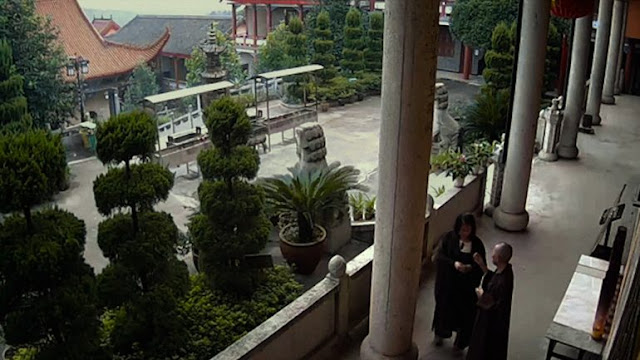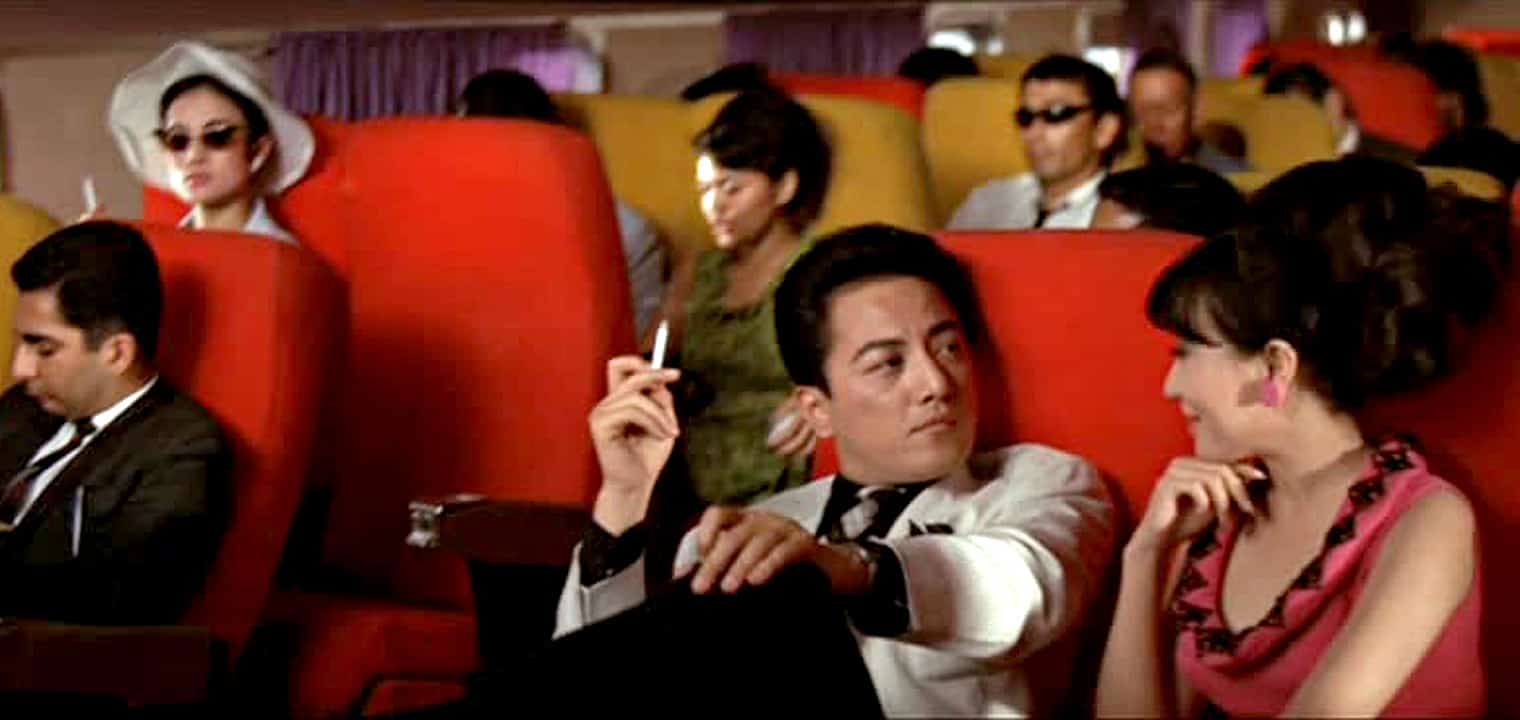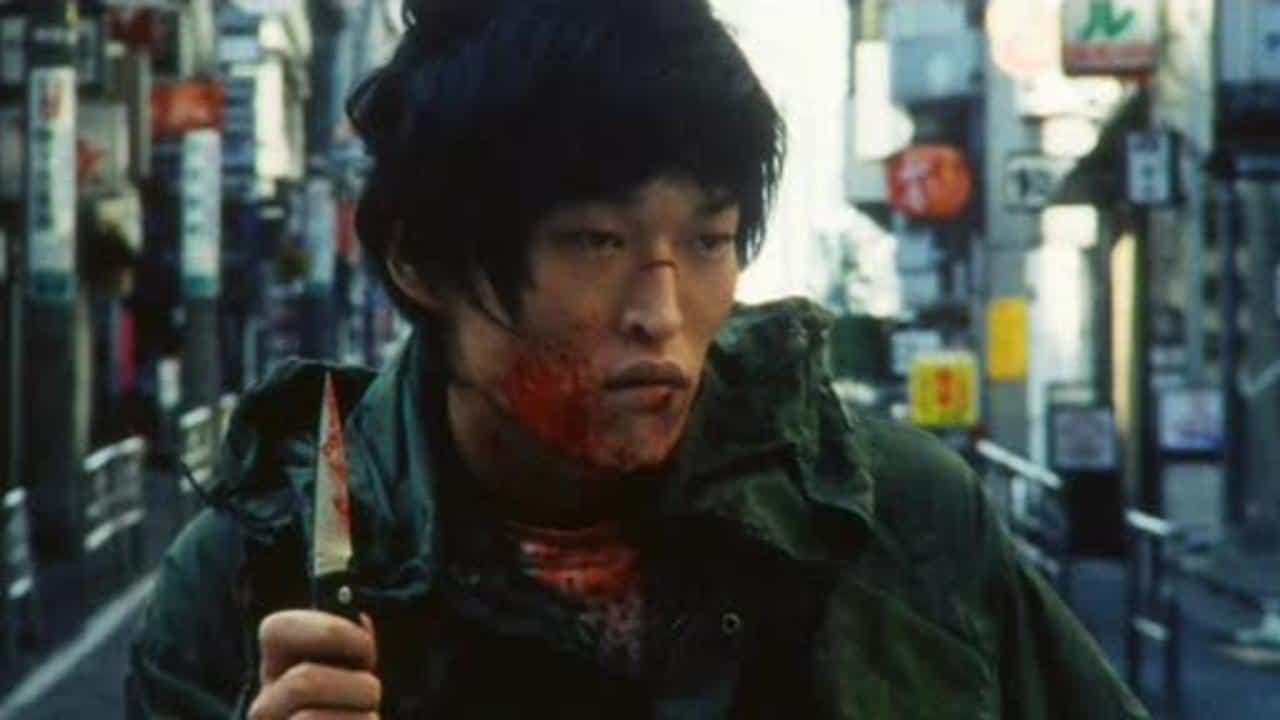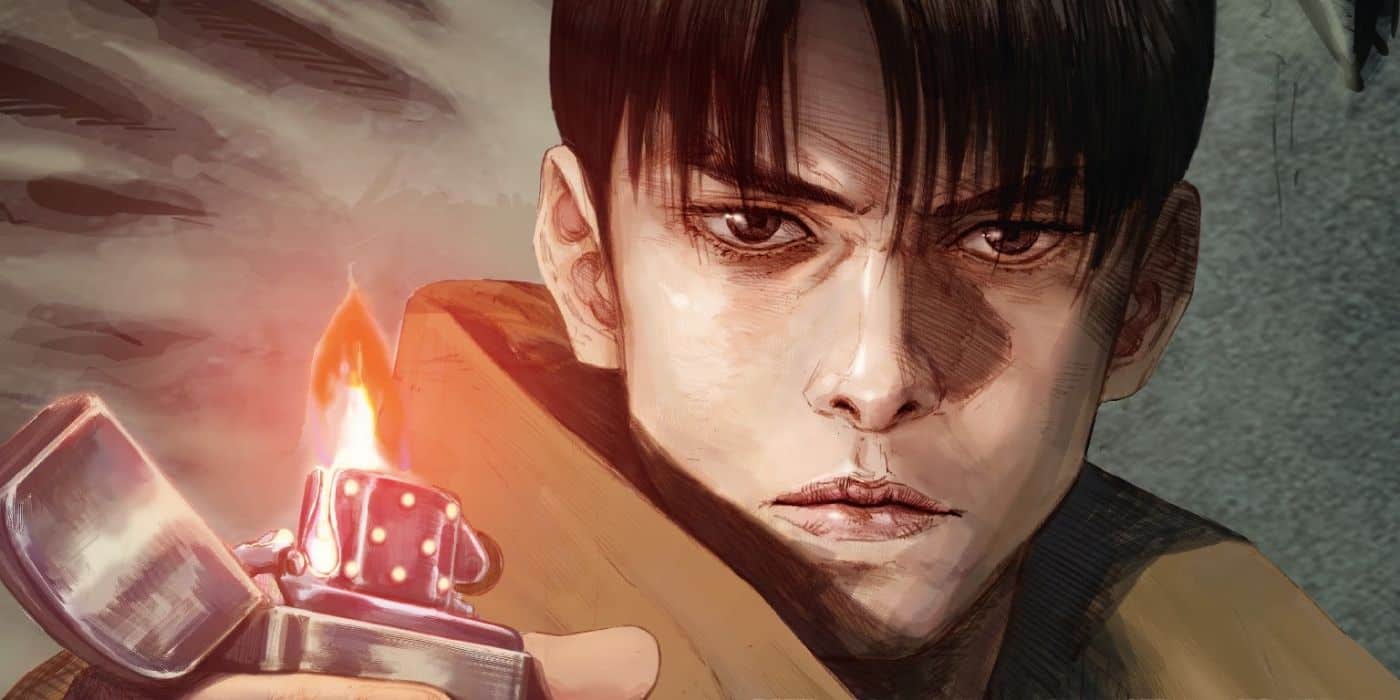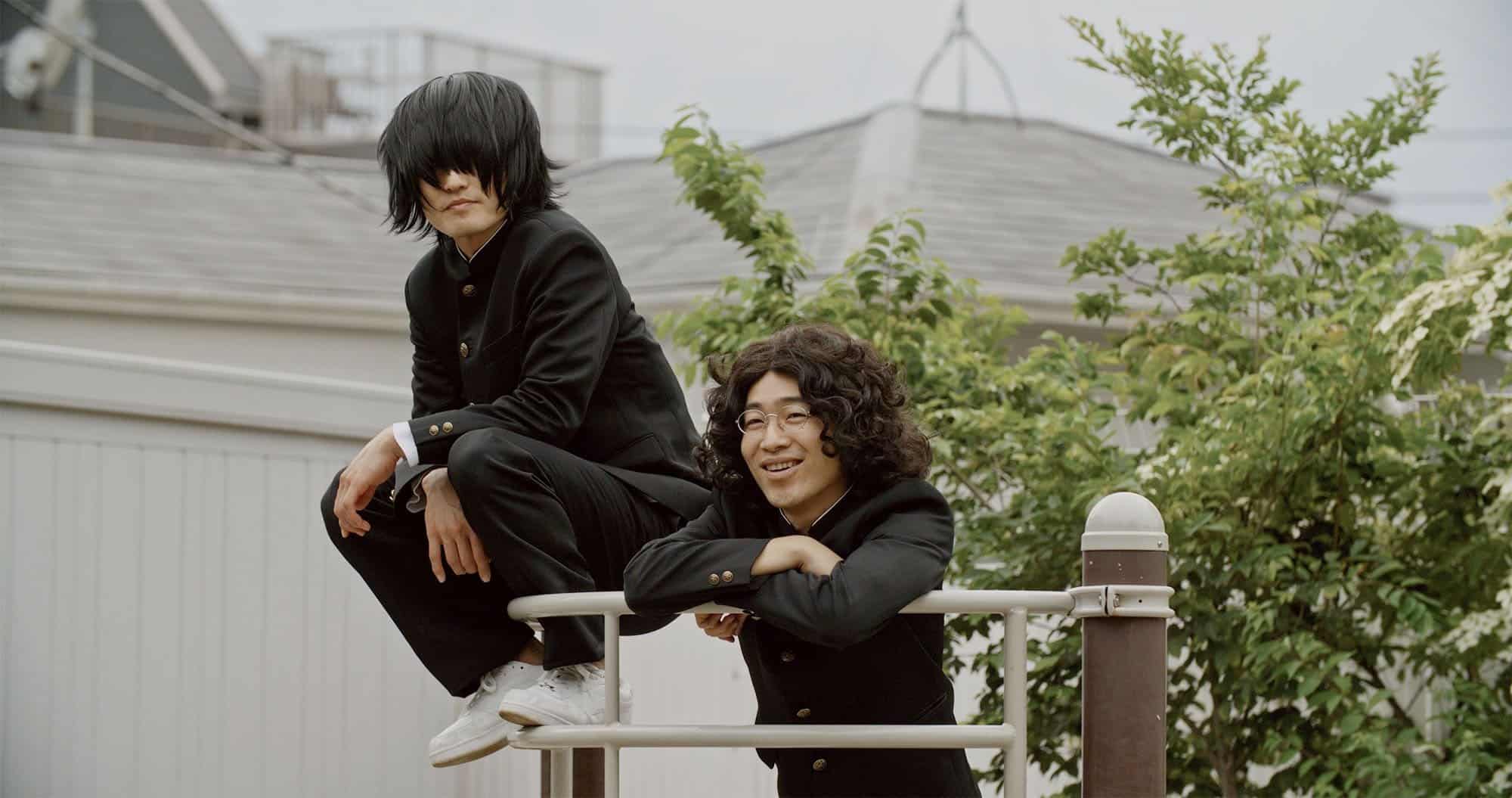I have reviewed more than a thousand Asian films, but very few have left me as perplexed as “Dragonfly Eyes,” both regarding their quality and regarding what I have just witnessed. One thing that can be said for the film, though, is that it does not lack in originality.
“Dragonfly Eyes” screened at San Diego Asian Film Festival
Xu Bing, a visual artist, started collecting surveillance videos and footage from the cloud. He collected a huge amount of material, and tailored them together to tell a story. The heroes of the story are Qing Ting and Ke Fan, which are played by different, unsuspected individuals who have been caught on surveillance cameras. Xu Bing added voice acting and, with the help of foley artists, filled the narrative with sounds, since the surveillance cameras rarely record sound, just image.
The rather abstract story shows Xu Bing leaving the monastery she inhabited to experience the “actual” world. She takes odd jobs, from a cow farm, to a dry cleaners, to a restaurant, where always something happens and she gets fired. The only one who seems to stay by her side is Ke Fan, a man who has feelings for her, although unrequited. Eventually, Xu Bing disappears, Ke Fan searches for her desperately, and the concept of plastic surgery comes to the fore.
The first questions that were raised in my mind as I was watching the film, was “how much time did he spend collecting all this footage?” and “how much time did he spend editing them?” The amount of work seems truly humongous, and Xu Bing seems to have found the proper samples, in order to present his story (even in extremely abstract and even surrealistic fashion), and some impressive, random footage from accidents or other memorable episodes captured on camera.
As he tells his story in this rather unusual way, Xu Bing makes some pointy comments regarding the contemporary Chinese society. The difficulty of relationships between men and women, the extremely one-sided imbalance between employees and customers, the search for identity, the concept of idols, and social media are all referenced and commented upon, again in a fashion that left me perplexed as to how Xu Bing managed to do it, and glue all the above together. Furthermore, the finale actually provides a very fitting end to the circle of the story.
As I conclude the review, I have to admit I still do not know what to make of “Dragonfly Eyes,” but I think that is where its value lies, as a film that will make its audience think, while it also provides a truly original spectacle.




